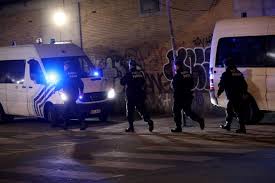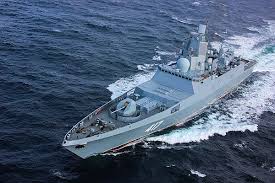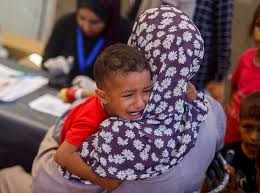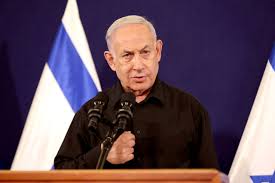Kazantsev Andrey
In the historical memory of our people, Afghanistan is associated with the war of 1979-1989 and the losses that darkened the last years of the existence of the USSR. Many also believe that these events were in many ways one of the factors that led to the collapse of the Soviets. Today the foreign press writes more and more that Russia can and will play one of the decisive roles in the Afghan settlement. Why does Moscow need to participate in this difficult process, are there any benefits for it, taking into account the difficult associations that pop up in the memory of any Russian at the word “Afghanistan”? Isn’t it better to try to ignore the very existence of this country and reduce its mention in the media space?
To speak so as not to fight
The answer is that the Russian Federation needs to participate in the peaceful settlement of the situation in Afghanistan precisely in order not to fight there again. The situation on the borders of this country and in general in the former Soviet Central Asia is such that our complete withdrawal from these territories can lead to a big war, which, in turn, will inevitably reach Russia itself.
In support of this, let me remind you of the historical experience gained after the end of the Afghan war. Russian troops participated in the separation of the parties in the 1990s during the incredibly bloody civil war in Tajikistan, accompanied by sub-ethnic cleansing and spawning waves of refugees that reached Moscow – then one could meet Tajik refugees, even begging for alms in the center of the capital near the metro … Part of the peacekeeping mission was the participation of our border guards in clashes on the Tajik-Afghan border. The most dramatic episode was the destruction by militants of 25 Russian border guards on July 13, 1993 at the 12th outpost of the Moscow border detachment. In that battle, one of the terrorists’ commanders was the future leader of the Chechen militants, Amir ibn al-Khattab, who was trained in the camps of al-Qaeda.
In my opinion, such a development of events fully explains Russia’s security interests in Afghanistan and Central Asia. The Russian Federation, even in a purely selfish sense, is vitally important to ensure stability in this region, to do everything to avoid cross-border threats that may cross the Russian borders.
These threats include international terrorism, drug trafficking, uncontrolled migration flows, as well as the formation of “failed states” that do not control their territory and give rise to terrorist enclaves (as it once happened in Afghanistan and could have happened in Tajikistan in the 1990s years). In this regard, Central Asia is inevitably perceived in Russia as one complex with Afghanistan.
The risks of an overflow of instability from this state pose a serious challenge for such Central Asian countries as Tajikistan, Kyrgyzstan, Kazakhstan, and the Russian Federation guarantees them security within the framework of the Collective Security Treaty Organization (CSTO). For a quiet life of people in their own country and in partner countries, Russian military bases are located on the territory of the Central Asian countries of the CSTO (201st in Tajikistan and the Kant airbase in Kyrgyzstan), as well as other military facilities. The relevance of this was emphasized at the CSTO session held on August 23 under the chairmanship of President of Tajikistan Emomali Rahmon. The agenda of the meeting included issues of ensuring the security of the CSTO member states in the context of the events in Afghanistan.
“Black Hole ” of terrorism
After the departure of the Soviet troops and the victory of the Mujahideen, and then the Taliban, Afghanistan turned into a “black hole” that attracted international terrorists from all over the world. Tajikistan was not dragged into it unless thanks to the efforts of Russia. After that, the Russian Federation was forced to take part in the Batken events in Kyrgyzstan in 1999 within the framework of the CIS Collective Security Treaty (the predecessor of the CSTO). During that “mini-war”, representatives of the Islamic Movement of Uzbekistan terrorist group, trying to break into the country of origin after the powerful terrorist attacks organized in Tashkent, got stuck in the Batken region of Kyrgyzstan.
Problems related to Afghanistan have also touched Russia at the very turn of the millennium, which was recently recalled by Russian President Vladimir Putin.
The most radical wing of the North Caucasian militants had close ties with the Taliban through al-Qaeda.
The latter took an active part in two Chechen wars; it is believed that the demolitionists who carried out many of the terrorist attacks in Russia were trained by instructors sent by al-Qaeda from Afghanistan.
Now, as Russian Defense Minister Sergei Shoigu has said many times, there is a link between the militants who fought against Russia in Syria (primarily from among immigrants from the post-Soviet space) and Afghanistan through the Islamic State of Khorasan, a territorial division of the Islamic State in Afghanistan as well as through ethnic extremist groups associated with Al-Qaeda.
Therefore, the issue of reconciliation of Afghans with each other is a matter of national security for Russia itself. The Taliban who won the war have promised that they will expel the international terrorists who have settled there from the country. They also promised to create an inclusive government that will include representatives of national minorities. This is a key issue for peace in Afghanistan, since their titular ethnic group, the Pashtuns, make up about two-fifths of the country’s population. And Northern Afghanistan is inhabited by the same peoples that live in the former Soviet republics – Tajiks, Uzbeks, Turkmens, Kyrgyz, they are connected with the countries of Central Asia, and any conflict (like, say, now the clashes in the Panjshir Gorge) inevitably affects the neighboring state. In addition, Afghanistan is connected not only with post-Soviet Central Asia,
In the situation described, the Russian Foreign Ministry, in particular, inevitably has to carry out a very complex, requiring great skill, patience and subtlety work on mediation in the conclusion of peace in the country. Except for Russia, perhaps, in the current situation, no one can do this work.
But even given the well-known history of the Taliban, Russia will not blindly trust their promises. For insurance, it has a defense system on the borders with Afghanistan, which has shown itself well for over 30 years, primarily on the Tajik-Afghan border. So the territory of the Russian Federation is well protected from possible chaos in Afghanistan.






